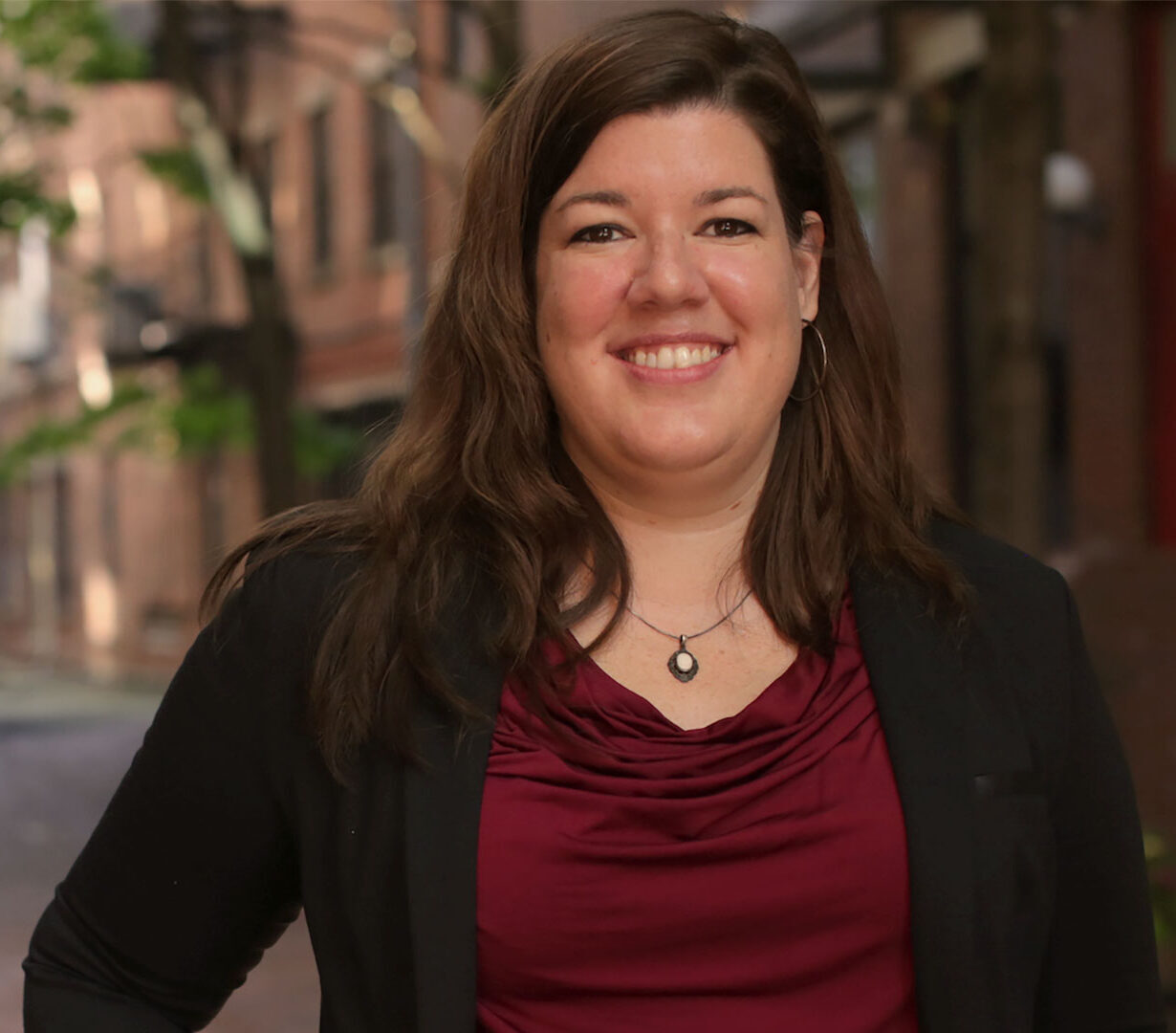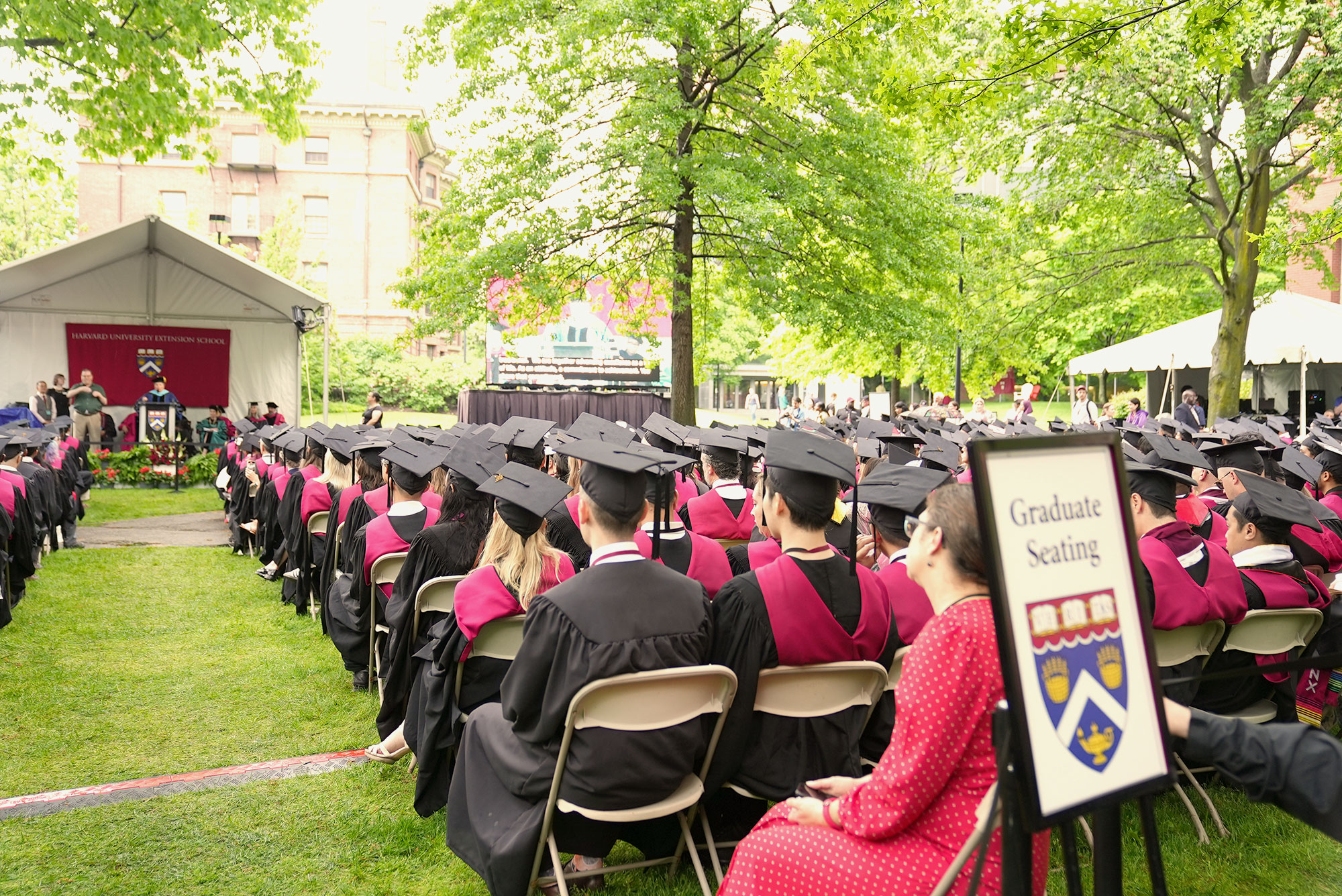On this page
There’s always something that sparks a career change. For me, it was four months of grand jury duty.
There’s always something that sparks a career change. For me, it was four months of grand jury duty.
I’ve always been a writer — mostly fiction, but also marketing content and copywriting — and for a long time I was curious about what it would be like to be a freelance writer. However, in a world where 9-to-5 work seemed to be the only option, I didn’t know if that would ever happen. I also heard the stories of freelancers who couldn’t find work or were writing pieces for mere dollars — who knew if it was even a viable career option for me.
So, I did my writing on the side while I worked in higher education administration at Harvard Business School for most of my thirties. To continue to become a better writer, I wanted to study how great literature was crafted. In 2018, I graduated with a Master of Liberal Arts (ALM) in English from the Harvard Extension School (if you’re curious, you can read my Director’s Prize-winning master’s thesis on Moby-Dick here).

You’re never ready for big life changes; you just have to take the leap anyway.
Master of Liberal Arts (ALM) in the field of Literature, ’18
Then, at the beginning of 2019, I received a summons for grand jury duty. Unlike a trial jury, which may serve for a day or a week, a grand jury required me to serve for four months, three days a week, from about 9 a.m. to 3 p.m. each day.
It was a pretty radical shift.
While we heard about 70 cases over those four months, most of the time we were in the jury room was spent waiting to hear the next case. We couldn’t leave. We could bring work, but there was no Wi-Fi. On one of those mornings, I started researching “How to be a freelance writer” on my phone during the time we spent waiting. I read all the content I could find about the right way to pursue freelance writing: how to get high-paying clients, where to look for work, and how to market myself as a professional. It was exciting to think that my writing skills could be in high demand by businesses that didn’t have that capability on staff.
Once the four months were up, I emerged from grand jury duty only to find that my day job had been massively restructured. It was time to go, and in the fall of 2019, I made the leap into freelancing — and I knew how to do it because of my endless research in the jury room.
6 Things I Learned from My Career Change
Making any career change is daunting — and transitioning to self-employment even more so — but it was the right choice for me. It allowed me to pursue work I love and use the skills and talents I enjoy using.
Here’s some guidance for those considering a career change, from my own experience:
1. Take stock of your values
Work priorities are different for everyone. For me, I knew I wanted to use my skills, talent, and interest in writing; have a role that’s autonomous or an individual contributor; and do work that’s flexible. Evaluate what you want and how you work best, and let those values guide your next steps.
2. Pay attention to the signs
When is it time for a career change? You may feel it in your gut. Things at work may have suddenly shifted. You may need to make a location move. You may have had some exposure to a new field that energized you. People may tell you that you seem unfulfilled.
For me, it was significant changes to my role at work coupled with the time to research how to make a change. Pay attention to both external and internal signs indicating it may be time for something new.
3. Do ALL the research
You may not have the “opportunity” to sit for grand jury duty and research on your phone for four months (I hope you don’t!), but I was only able to make a career change because I knew how to do it.
Going freelance or becoming self-employed has a different trajectory than moving to a different company in a different field, but both require you to put in the time to understand the path forward so you can walk it successfully.
4. It’s always the right time… and never the right time
You’re never ready for big life changes; you just have to take the leap anyway. If you believe a career change is the right thing for you, take action to make it a reality. Be aware if you’re making excuses, though, like “I just need to do more research” or “I should wait until I have another year at this job.” If you know you need a change yet continue to postpone it, you run the risk of burnout or other negative effects.
5. Work hard to make it work
I didn’t know in 2019 that I was going freelance right before a global pandemic. But because I had done the work to commit to the career change, I also worked hard to make sure I could sustain that change despite a global pandemic — which included actively finding clients and improving my skills. If you believe that a career change will be worth the effort, that goal and vision forward will help sustain the effort to make it work.
6. You never know what you’ll use from your past in your new career
Ultimately, you may be more prepared for your career change than you think. My intention was to study literature at HES to become a better fiction writer — not to become a freelancer. Yet I find that I significantly rely on my academic writing training in the freelance writing I do every day.
I still look back to what I learned in HUMA 100 about how to structure an essay, how to build a paragraph, and how to conduct research when I write articles for clients. My experience writing a 70-page master’s thesis makes asks for intricate whitepapers and eBooks seem very manageable!
You’re Capable of More Than You Think!
Making a career change feels daunting and can be so much effort for a result that’s not necessarily guaranteed. But if that career change will get you closer to aligning your values, skills, and where you find meaning with what you do for work, then it’ll feel less like a burdensome assignment and more like an exciting journey on the right path forward.

